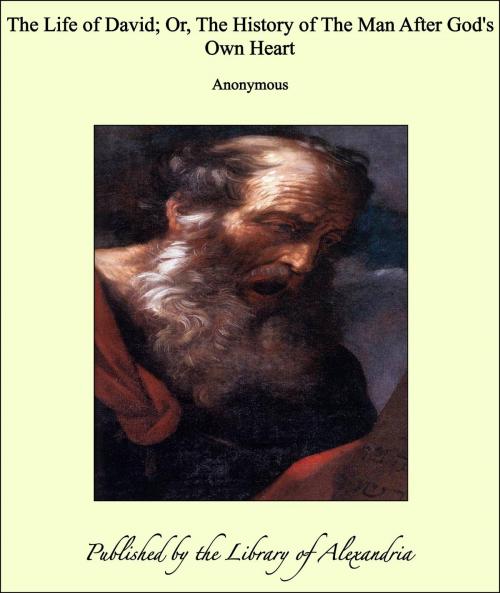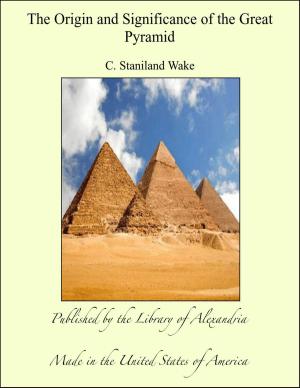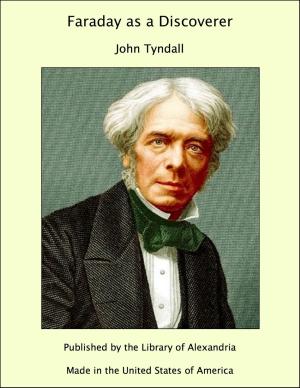The Life of David; Or, The History of The Man After God's Own Heart
Nonfiction, Religion & Spirituality, New Age, History, Fiction & Literature| Author: | Anonymous | ISBN: | 9781465557735 |
| Publisher: | Library of Alexandria | Publication: | July 29, 2009 |
| Imprint: | Library of Alexandria | Language: | English |
| Author: | Anonymous |
| ISBN: | 9781465557735 |
| Publisher: | Library of Alexandria |
| Publication: | July 29, 2009 |
| Imprint: | Library of Alexandria |
| Language: | English |
To the REV. SAM. CHANDLER, D.D. F.R. and A. SS. To whom, Sir, could the republication of this little history with more propriety be addressed, than to a gentleman to whom it is under such considerable obligations? When it first appeared, it was honoured with your notice in an especial manner; and is not a little benefited by your labours. You, Sir, with a careful hand noted its errors; and what has stood the test of your strictures is certainly established with additional authority. Whatever might be the motives which influenced so vigorous an exertion of your learned and critical powers—powers so universally acknowledged and respected, the author of this piece will not now inquire: it is sufficient to him, that they operated to the extending the knowledge of his tract, among that class of readers who stood most in need of the information it furnished; and he is persuaded you will with pleasure hear his assurances, that the work owes no small share of what approbation it may have gained, to your elaborate review of it. Several worthy pious persons having candidly declared in private conversation, (and unknowingly to the author himself) that the perusal of your book really strengthened the facts advanced in the history. For this, therefore, he considers you as entitled to his thanks; and that his acknowledgments might be as public as the obligation, no method of conveyance seemed more proper, than to prefix them to this new Edition of "The History of the Man after God's own Heart." He scorns, Sir, to follow the practice of Dedicators in common, who, from venal motives, surfeit their patrons with fulsome adulation: he will not, therefore, call the blushes into your countenance, by expressing his private sentiments of your learned Review of this Historical Sketch, farther than by one observation; which is, that had you been totally unknown in the republic of letters before, your apology for the death of Uriah would alone have raised your literary fame beyond the power of envious detraction. However, not to offend your modesty, he desists from farther encomiums; but with a wish that you may long live to enjoy the reputation acquired by so laudable a performance, he concludes with subscribing himself
To the REV. SAM. CHANDLER, D.D. F.R. and A. SS. To whom, Sir, could the republication of this little history with more propriety be addressed, than to a gentleman to whom it is under such considerable obligations? When it first appeared, it was honoured with your notice in an especial manner; and is not a little benefited by your labours. You, Sir, with a careful hand noted its errors; and what has stood the test of your strictures is certainly established with additional authority. Whatever might be the motives which influenced so vigorous an exertion of your learned and critical powers—powers so universally acknowledged and respected, the author of this piece will not now inquire: it is sufficient to him, that they operated to the extending the knowledge of his tract, among that class of readers who stood most in need of the information it furnished; and he is persuaded you will with pleasure hear his assurances, that the work owes no small share of what approbation it may have gained, to your elaborate review of it. Several worthy pious persons having candidly declared in private conversation, (and unknowingly to the author himself) that the perusal of your book really strengthened the facts advanced in the history. For this, therefore, he considers you as entitled to his thanks; and that his acknowledgments might be as public as the obligation, no method of conveyance seemed more proper, than to prefix them to this new Edition of "The History of the Man after God's own Heart." He scorns, Sir, to follow the practice of Dedicators in common, who, from venal motives, surfeit their patrons with fulsome adulation: he will not, therefore, call the blushes into your countenance, by expressing his private sentiments of your learned Review of this Historical Sketch, farther than by one observation; which is, that had you been totally unknown in the republic of letters before, your apology for the death of Uriah would alone have raised your literary fame beyond the power of envious detraction. However, not to offend your modesty, he desists from farther encomiums; but with a wish that you may long live to enjoy the reputation acquired by so laudable a performance, he concludes with subscribing himself















